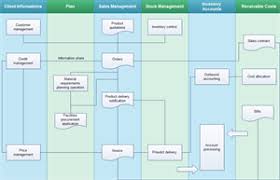The Importance of Efficient Work Processes
Work processes are the backbone of any successful organisation. They define how tasks are accomplished, how decisions are made, and how resources are allocated. Efficient work processes can streamline operations, increase productivity, and improve overall performance.
Benefits of Well-Defined Work Processes
Increased Productivity: Clear work processes eliminate confusion and reduce time wasted on figuring out how to complete tasks. Employees can focus on their work without unnecessary interruptions.
Consistency: Standardised processes ensure that tasks are performed the same way each time, leading to consistent results and quality output.
Improved Communication: Well-defined processes clarify roles and responsibilities within a team or organisation, promoting better communication and collaboration.
Cost Efficiency: Streamlined processes reduce inefficiencies and redundancies, ultimately saving time and resources.
Tips for Optimising Work Processes
- Document Processes: Create detailed process documentation that outlines step-by-step instructions for completing tasks.
- Solicit Feedback: Encourage employees to provide feedback on existing processes to identify areas for improvement.
- Automate Tasks: Use technology to automate repetitive tasks, freeing up time for more strategic activities.
- Regular Review: Continuously review and update work processes to adapt to changing business needs and industry trends.
In Conclusion
An organisation with efficient work processes is better positioned to achieve its goals and maintain a competitive edge in today’s fast-paced business environment. By prioritising process optimisation and continuous improvement, businesses can enhance operational efficiency, employee satisfaction, and overall success.
7 Essential Tips for Optimising Your Work Processes
- Create a daily to-do list to stay organised and focused.
- Prioritise tasks based on deadlines and importance.
- Break down complex projects into smaller, manageable tasks.
- Take regular breaks to prevent burnout and maintain productivity.
- Communicate clearly with colleagues to avoid misunderstandings.
- Use technology tools like project management software to streamline work processes.
- Review your work regularly to identify areas for improvement.
Create a daily to-do list to stay organised and focused.
Creating a daily to-do list is a simple yet powerful strategy to enhance productivity and focus in work processes. By outlining tasks and priorities for the day, individuals can better organise their time, set clear goals, and maintain a sense of direction throughout their workday. A well-structured to-do list not only helps in staying organised but also boosts motivation as tasks are completed and checked off the list, providing a sense of accomplishment and progress.
Prioritise tasks based on deadlines and importance.
In the realm of work processes, a crucial tip is to prioritise tasks based on their deadlines and importance. By assigning priority levels to tasks according to their urgency and significance, individuals and teams can effectively manage their workload and ensure that critical deadlines are met. This approach not only helps in maintaining focus and productivity but also enables resources to be allocated efficiently towards high-impact activities, ultimately contributing to the overall success of projects and organisational goals.
Break down complex projects into smaller, manageable tasks.
Breaking down complex projects into smaller, manageable tasks is a crucial strategy for enhancing work processes. By dividing a large project into smaller components, employees can focus on one task at a time, leading to increased clarity and productivity. This approach not only makes the project more manageable but also allows for better tracking of progress and easier identification of potential bottlenecks. Ultimately, breaking down complex projects into smaller tasks promotes efficiency and helps teams achieve their objectives more effectively.
Take regular breaks to prevent burnout and maintain productivity.
Taking regular breaks is a crucial aspect of maintaining productivity and preventing burnout in the workplace. By stepping away from work at intervals, employees can recharge their energy levels, regain focus, and avoid mental fatigue. Breaks provide an opportunity to relax, clear the mind, and return to tasks with renewed vigour and creativity. Incorporating short breaks into the workday not only enhances productivity but also promotes overall well-being and work-life balance. Remember, a well-rested mind is a productive mind.
Communicate clearly with colleagues to avoid misunderstandings.
Clear communication with colleagues is essential to prevent misunderstandings and promote effective collaboration in the workplace. By articulating ideas, expectations, and feedback concisely and openly, team members can ensure that everyone is on the same page and working towards common goals. When communication is transparent and precise, it fosters a positive working environment where tasks are completed efficiently, conflicts are minimised, and productivity is maximised.
Use technology tools like project management software to streamline work processes.
By utilising technology tools such as project management software, organisations can significantly streamline their work processes. These tools offer features that facilitate task assignment, progress tracking, collaboration, and communication within teams. By centralising project-related information and automating routine tasks, project management software enhances efficiency, reduces errors, and promotes transparency in workflow management. Implementing such tools can lead to improved productivity and overall effectiveness in achieving project goals.
Review your work regularly to identify areas for improvement.
Regularly reviewing your work processes is a crucial step in maintaining efficiency and effectiveness within your organisation. By consistently evaluating how tasks are carried out and identifying areas for improvement, you can ensure that your operations remain streamlined and productive. This practice allows you to adapt to changing circumstances, address inefficiencies, and implement enhancements that drive continuous progress and success. Embracing a culture of regular review fosters a proactive approach to problem-solving and empowers your team to strive for excellence in all aspects of their work.

